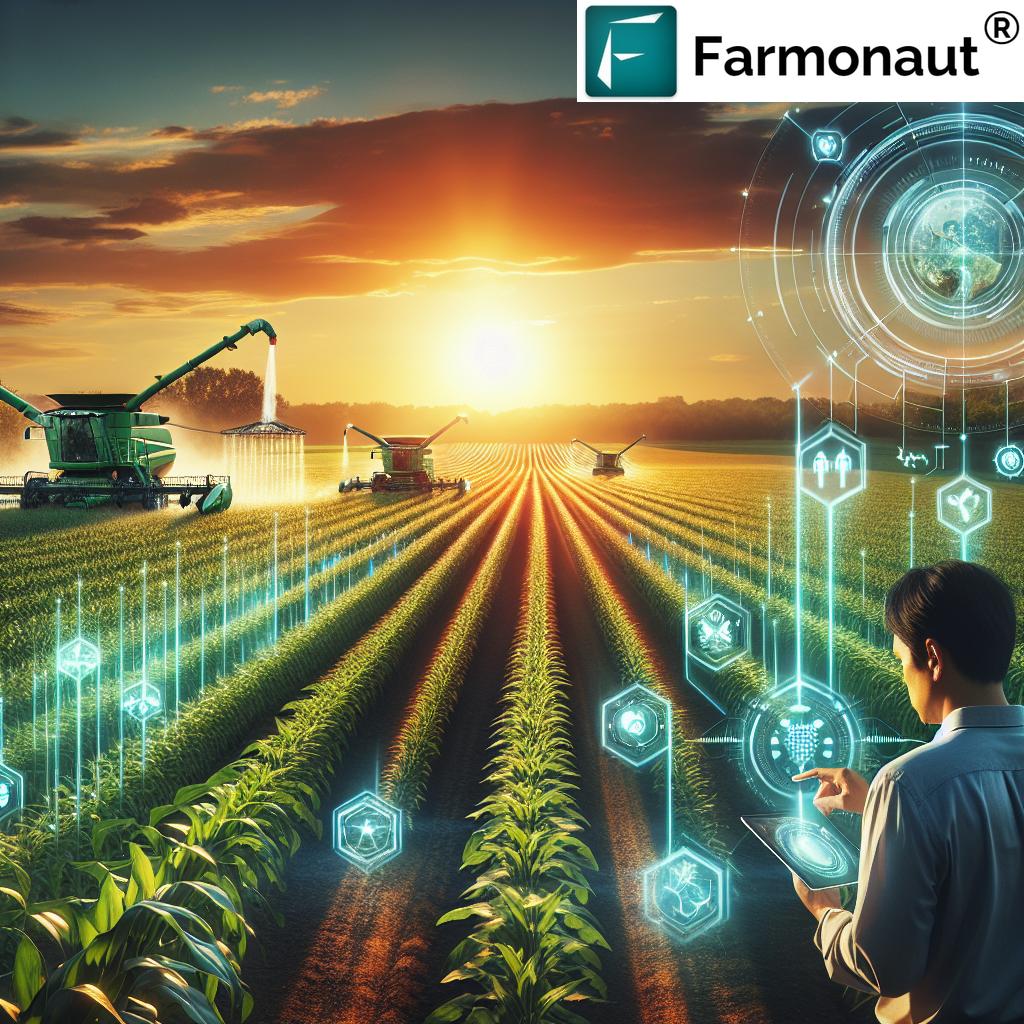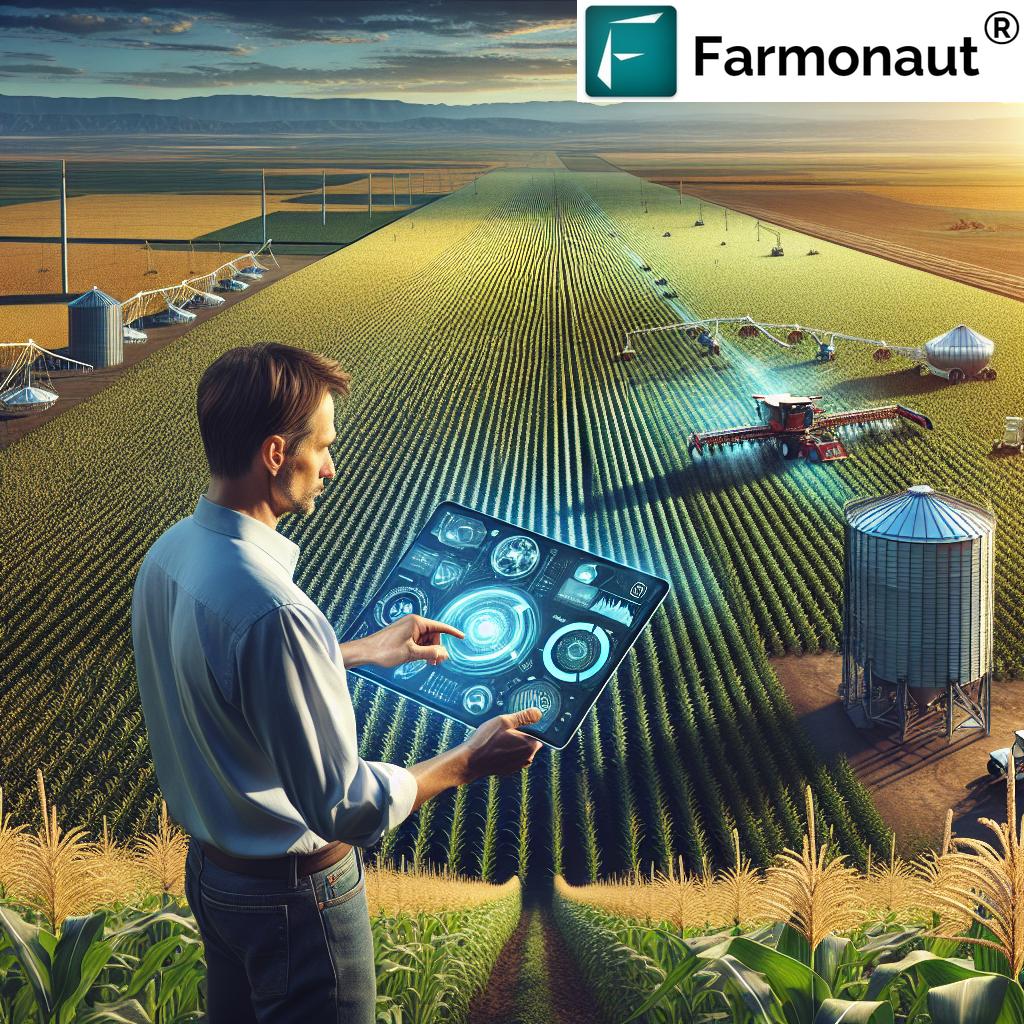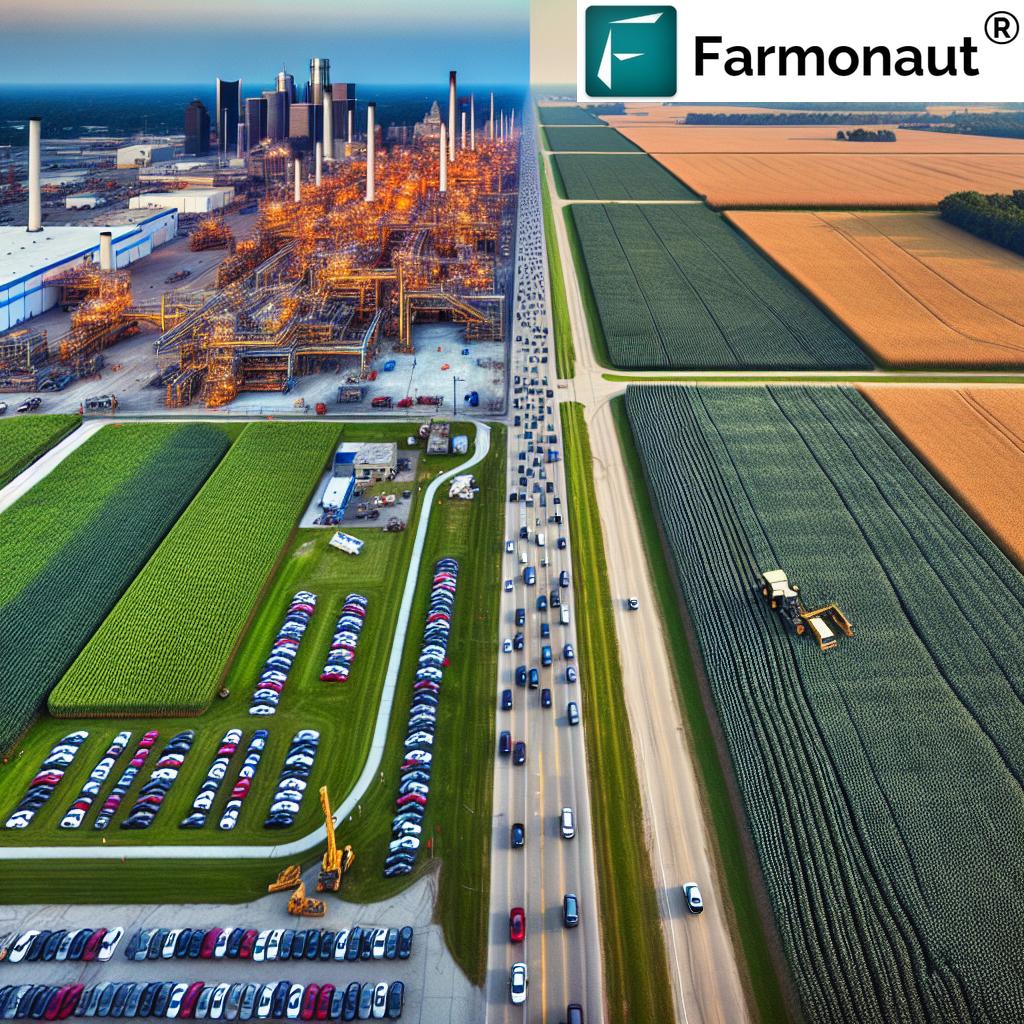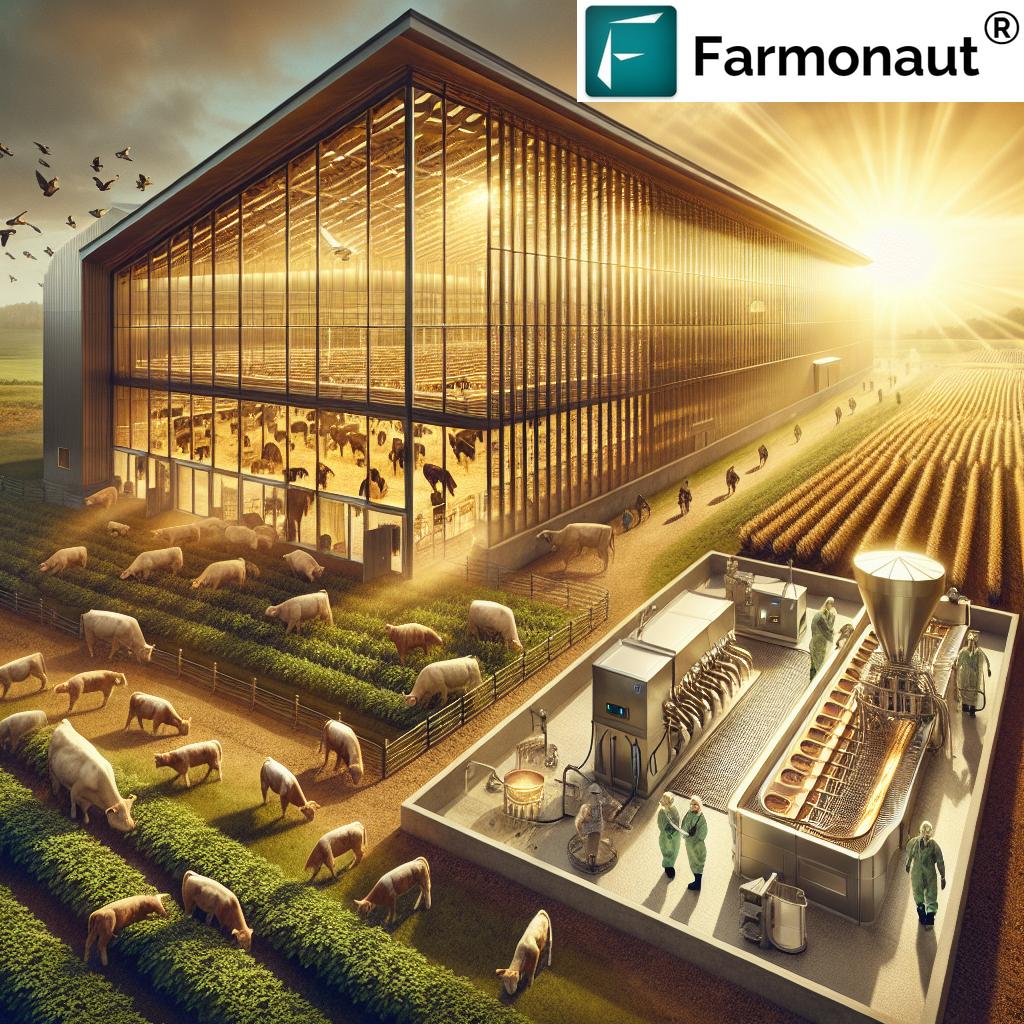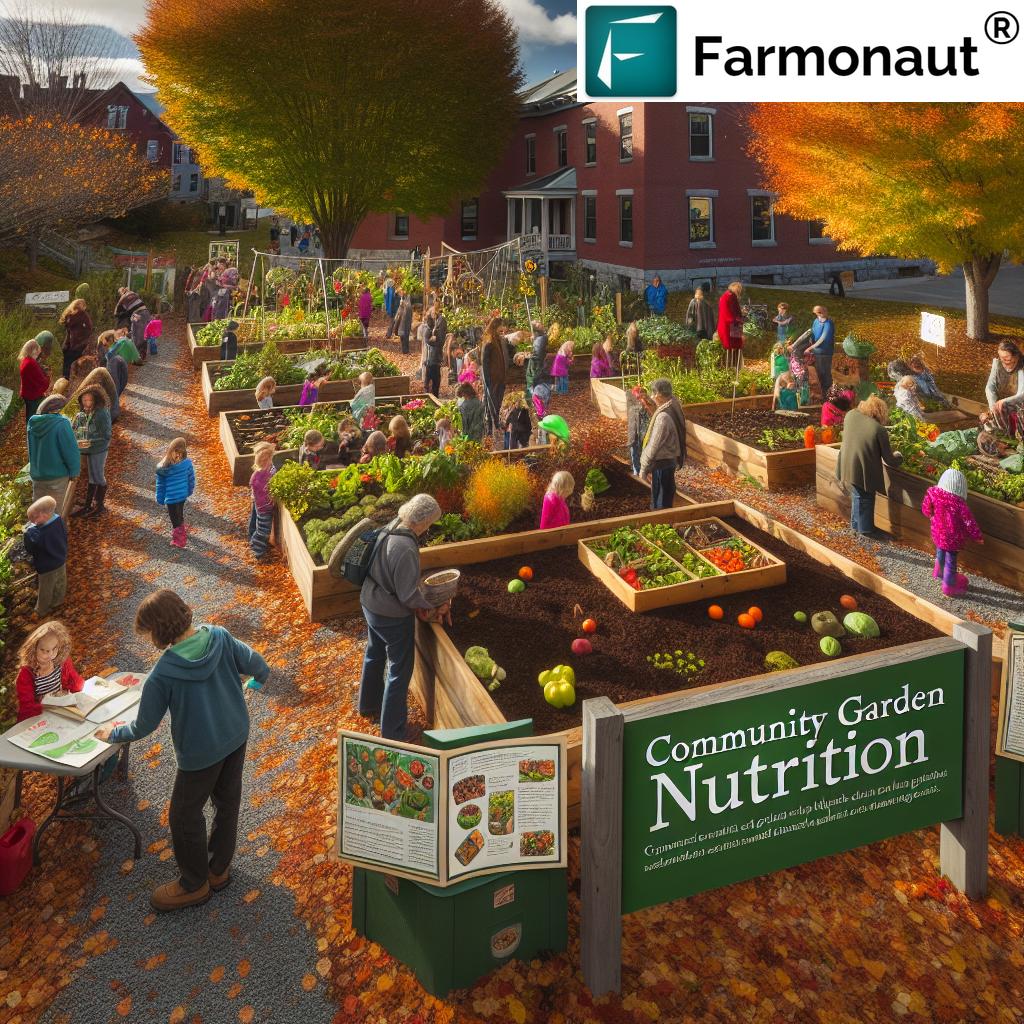The Evolution of Organic Agriculture: Sustainable Practices and Market Growth in Washington’s Farms
“Organic food sales in Washington surpassed $9.6 billion in 2022, reflecting a significant shift in consumer preferences.”
In the verdant landscapes of Washington State, a quiet revolution has been unfolding over the past few decades. The evolution of organic agriculture from a niche market to a mainstream powerhouse has reshaped not only the way we grow our food but also how we think about sustainability, health, and the environment. As we delve into this transformative journey, we’ll explore the sustainable practices that have driven this change and the remarkable market growth that has accompanied it.
The Rise of Organic Farming in Washington
Washington State has long been known for its diverse agricultural output, from the apple orchards of Wenatchee to the wheat fields of the Palouse. However, in recent years, it’s the organic sector that has been making headlines. The growth of organic farming practices in Washington is not just a local phenomenon but part of a larger national and global trend towards more sustainable and environmentally friendly food production methods.
- Increased consumer demand for healthier food options
- Greater awareness of environmental issues
- Support from state and federal policies
- Technological advancements in sustainable farming
These factors have collectively contributed to the robust growth of organic agriculture in the state. But what exactly does this growth look like in numbers?
| Year | Number of USDA Certified Organic Farms | Total Organic Acreage | Organic Sales (in millions USD) | Top 3 Organic Crops (by acreage) |
|---|---|---|---|---|
| 2012 | 715 | 95,000 | 291 | Apples, Hay, Vegetables |
| 2013 | 735 | 98,000 | 320 | Apples, Hay, Vegetables |
| 2014 | 750 | 102,000 | 355 | Apples, Hay, Wheat |
| 2015 | 780 | 106,000 | 390 | Apples, Hay, Wheat |
| 2016 | 810 | 110,000 | 430 | Apples, Wheat, Vegetables |
| 2017 | 850 | 115,000 | 475 | Apples, Wheat, Vegetables |
| 2018 | 890 | 120,000 | 520 | Apples, Wheat, Berries |
| 2019 | 930 | 125,000 | 570 | Apples, Wheat, Berries |
| 2020 | 970 | 130,000 | 625 | Apples, Wheat, Potatoes |
| 2021 | 1,010 | 135,000 | 685 | Apples, Wheat, Potatoes |
| 2022 | 1,050 | 140,000 | 750 | Apples, Wheat, Potatoes |
This table illustrates the remarkable growth of organic agriculture in Washington State over the past decade. The number of USDA certified organic farms has increased by nearly 47%, while organic sales have more than doubled. This growth trajectory underscores the increasing importance of organic farming in Washington’s agricultural landscape.
The USDA Organic Certification: A Game Changer
“USDA organic certification has transformed from a niche to mainstream, reshaping agricultural practices across Washington’s farms.”
The USDA organic certification process has played a pivotal role in the evolution of organic agriculture. This standardization has provided consumers with assurance about the products they purchase and has given farmers a clear set of guidelines to follow. However, the journey to certification is not without its challenges.
The Certification Process
Obtaining USDA organic certification involves a rigorous process that includes:
- Developing an organic system plan
- Implementing organic practices for at least three years
- Undergoing annual inspections
- Maintaining detailed records of farming practices
- Paying certification fees
For many farmers, especially smaller operations, this process can be daunting. The paperwork alone can be overwhelming, and the transition period can be financially challenging as farmers invest in new practices without being able to command organic premium prices for their products.
The Benefits of Certification
Despite these challenges, many Washington farmers have found that the benefits of organic certification outweigh the costs:
- Access to premium markets and higher prices for produce
- Improved soil health and biodiversity on their farms
- Reduced exposure to synthetic pesticides and fertilizers
- Alignment with personal values and environmental stewardship
As the organic market has grown, so too has the support system for farmers transitioning to organic practices. Organizations like Tilth Alliance in Washington have been instrumental in providing education and resources to farmers navigating the certification process.
Market Dynamics: The Organic Boom
The growth of organic agriculture in Washington is part of a larger national trend. According to the Organic Trade Association, organic food sales in the United States reached nearly $70 billion in 2023, a significant increase from just a decade ago. This growth has been driven by several factors:
- Increasing consumer awareness of health and environmental issues
- Growing availability of organic products in mainstream retail outlets
- Expansion of organic options beyond produce to include dairy, meat, and processed foods
- Millennial and Gen Z consumers prioritizing sustainability in their purchasing decisions
In Washington, the organic market has been particularly strong. The state’s diverse agricultural regions have allowed for a wide variety of organic crops, from the famous Washington apples to organic wheat and potatoes.
Challenges in the Marketplace
While the overall trend has been positive, organic farmers in Washington face several challenges in the marketplace:
- Competition from large-scale organic operations and imports
- Price volatility in organic markets
- Balancing supply with demand, especially for perishable produce
- Educating consumers about the value of organic products
These challenges have led some farmers to diversify their operations, combining organic and conventional practices or focusing on direct-to-consumer sales through farmers’ markets and CSA programs.
Sustainable Practices in Organic Farming
At the heart of organic agriculture are sustainable practices that aim to work in harmony with nature rather than against it. In Washington, organic farmers have become innovators in sustainable agriculture techniques:
- Crop Rotation: Alternating crops to maintain soil health and reduce pest pressures
- Cover Cropping: Planting non-harvest crops to prevent soil erosion and add nutrients
- Composting: Creating natural fertilizers from farm waste
- Integrated Pest Management: Using natural predators and traps to control pests
- Water Conservation: Implementing efficient irrigation systems and drought-resistant crops
These practices not only benefit the environment but also contribute to the long-term sustainability of farms. Many conventional farmers in Washington have begun adopting some of these practices, blurring the lines between organic and conventional agriculture.
Technology in Organic Farming
While organic farming often conjures images of traditional agricultural methods, technology plays an increasingly important role in modern organic operations. Farmers are leveraging advanced tools to optimize their practices and increase yields while maintaining organic standards.
Farmonaut, a pioneering agricultural technology company, offers satellite-based farm management solutions that are particularly valuable for organic farmers. Through its web and mobile applications, Farmonaut provides real-time crop health monitoring, allowing farmers to detect issues early and make informed decisions about irrigation and pest management.
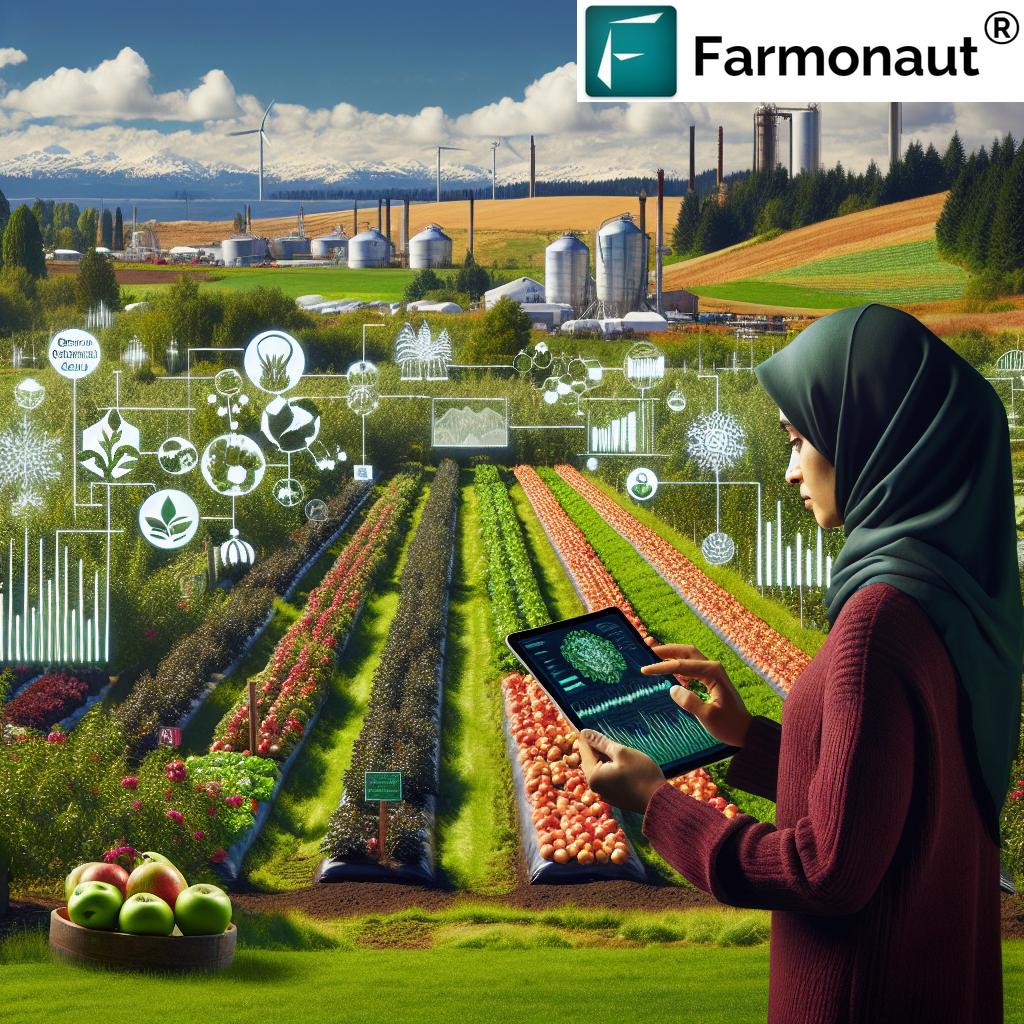
The company’s AI-driven advisory system, Jeevn AI, offers personalized recommendations tailored to organic farming practices. This technology helps farmers optimize their operations while adhering to organic certification requirements.
The Future of Organic Agriculture in Washington
As we look to the future, several trends are likely to shape the organic agriculture landscape in Washington:
- Increased Integration of Technology: Precision agriculture tools and data-driven decision-making will become more prevalent in organic farming.
- Climate Resilience: Organic farms will need to adapt to changing climate conditions, potentially leading to new crop varieties and farming techniques.
- Consumer Education: Efforts to educate consumers about the benefits of organic products will intensify, potentially expanding the market further.
- Policy Support: Government policies may evolve to provide more support for organic farmers, including research funding and transition assistance.
- Supply Chain Innovation: Improvements in processing and distribution infrastructure for organic products will help meet growing demand.
The role of technology in shaping this future cannot be overstated. Companies like Farmonaut are at the forefront of this technological revolution in agriculture. Their API and developer documentation allow for seamless integration of satellite data and AI-driven insights into existing farm management systems, making advanced technologies accessible to farms of all sizes.
Challenges and Opportunities
While the future of organic agriculture in Washington looks promising, there are challenges that need to be addressed:
- Labor Shortages: Organic farming often requires more manual labor, and finding skilled workers can be difficult.
- Research and Development: More investment is needed in organic-specific research to improve yields and pest management techniques.
- Market Saturation: As more farmers transition to organic, there’s a risk of market saturation for certain crops.
- Certification Costs: The expense of maintaining organic certification can be prohibitive for small farms.
However, these challenges also present opportunities for innovation and growth. For example, the development of more efficient organic farming technologies could help address labor shortages and improve yields.
The Role of Consumer Choice
Ultimately, the continued growth of organic agriculture in Washington depends on consumer demand. As more people become aware of the environmental and health benefits of organic products, their purchasing decisions will shape the future of farming in the state.
Consumers are increasingly looking for transparency in their food supply chains. This is where technologies like Farmonaut’s blockchain-based traceability solutions come into play, allowing consumers to track the journey of their food from farm to table.
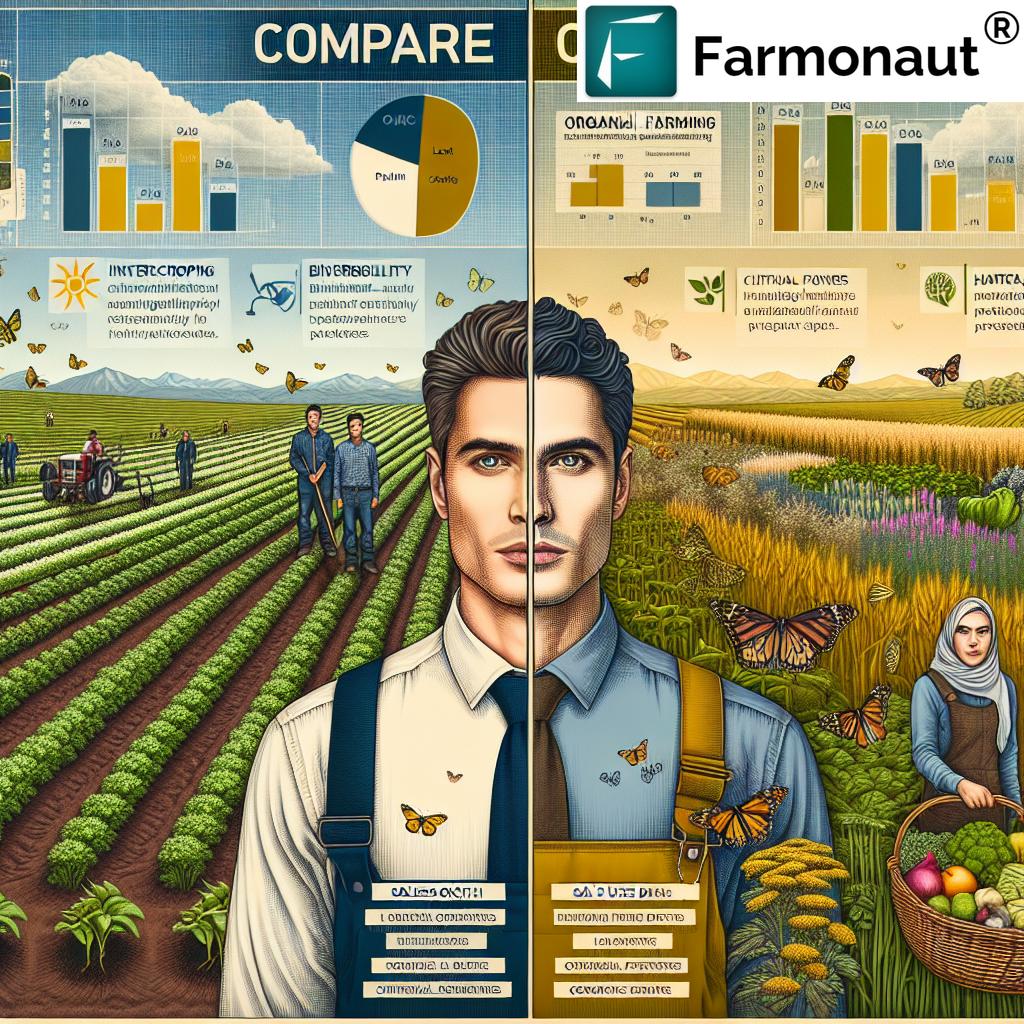
Conclusion: A Sustainable Future for Washington Agriculture
The evolution of organic agriculture in Washington State is a testament to the power of consumer choice, farmer innovation, and technological advancement. From its humble beginnings as a niche market, organic farming has grown into a significant force in Washington’s agricultural landscape, reshaping practices and perspectives along the way.
As we move forward, the integration of sustainable practices, advanced technologies, and consumer education will be key to the continued growth and success of organic agriculture in Washington. The challenges are real, but so are the opportunities for creating a more sustainable and resilient food system.
By embracing innovations like those offered by Farmonaut and other agtech companies, organic farmers in Washington can optimize their operations, reduce environmental impact, and meet the growing demand for organic products. The future of organic agriculture in Washington is not just about growing food; it’s about nurturing a sustainable relationship between farmers, consumers, and the environment.
As we conclude this exploration of organic agriculture in Washington, it’s clear that the journey is far from over. The next chapter in this story will be written by farmers, consumers, policymakers, and innovators working together to create a more sustainable and prosperous agricultural future for Washington State.
FAQ Section
Q1: What are the main benefits of organic farming?
A1: Organic farming offers several benefits, including:
- Reduced exposure to synthetic pesticides and fertilizers
- Improved soil health and biodiversity
- Lower environmental impact
- Potentially higher nutritional value in some crops
- Preservation of traditional farming practices
Q2: How long does it take for a farm to become certified organic?
A2: The transition period for a farm to become certified organic typically takes three years. During this time, farmers must follow organic practices but cannot market their products as organic until certification is complete.
Q3: Are organic products more expensive than conventional ones?
A3: Organic products are often more expensive due to higher production costs, including labor-intensive practices, certification fees, and potentially lower yields. However, prices can vary depending on the product and market conditions.
Q4: How does technology like Farmonaut help organic farmers?
A4: Farmonaut’s technology assists organic farmers by providing:
- Real-time crop health monitoring through satellite imagery
- AI-driven advisory for pest management and resource optimization
- Weather forecasting to aid in decision-making
- Tools for efficient resource management
Q5: What are the main challenges facing organic agriculture in Washington?
A5: Key challenges include:
- Labor shortages
- High certification costs
- Competition from large-scale operations and imports
- Climate change impacts
- Balancing supply with demand
For farmers looking to leverage technology in their organic operations, Farmonaut offers a range of solutions accessible through various platforms:
By embracing these technological solutions, organic farmers in Washington can stay at the forefront of sustainable agriculture, ensuring a bright future for organic farming in the state.









